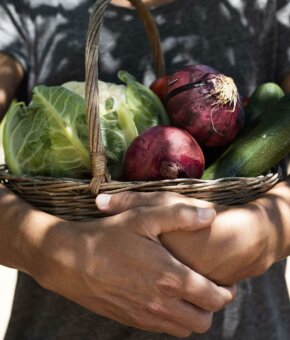
Instead of producing food in a few centralized locations around the world, according to Prof. Dr. Louise Vet, we should invest in localised production that is nature-inclusive. Because at the moment, we are destroying the planet, one species at a time.
Emeritus Professor of Evolutionary Ecology at the Dutch Wageningen University Louise Vet says her biggest worry is not COVID, or even climate change: it is biodiversity loss. At the moment, instead of working together with the natural system that makes it possible for us humans to live on this planet and living off the interest, we are living off the natural capital itself. If we continue living like this, Vet warns, soon there will be nothing left. Luckily, the Professor also offers a viable alternative to this bleak forecast.
We should work on our natural capital and live off the interest
Together for biodiversity
In the Netherlands, there has been a rapid decline in the wealth of animals and plants. Because the decrease in biodiversity has just as much impact above the ground as it does in the soil and below the water surface, not all the loss is visible to the naked eye. But from unicellular organisms to insects and from fish, birds and mammals to trees and plants: we are losing precious species every single day.
Biodiversity is essential for maintaining ecosystems and thus a healthy living environment. Nature organisations, farmers, scientists, banks and companies are aware of this problem and have joined forces. In 2018, 19 parties united in Samen Voor Biodiversiteit (Together for Biodiversity) to work together on the Delta Plan for Biodiversity Restoration. Meanwhile, over a hundred partners and supporters have joined the movement. With only one goal: a more biodiverse Netherlands. Professor Vet is Chair of the organisation.
The approach
The core of the organization’s approach is that everyone can stimulate and appreciate land users – such as nature managers, farmers, governments and private individuals – for their performance that contributes to the recovery of biodiversity. By making these performances unambiguously measurable, rewards can be stacked and positive impacts on biodiversity become tangible. Good monitoring is indispensable, as is cooperation between the various areas in the Netherlands.
Everything is interconnected
Nature areas, agricultural areas, public space and cities are of great importance for biodiversity in the Netherlands, because nature has no sharp boundaries. Just look at the insects that pollinate crops and the meadow birds and butterflies that feel at home in both nature reserves and cities. If all land users in an area start working together, there will be more opportunities for wild plants and animals. For example, via a tiny forest in the city, a wood embankment connecting nature reserves, a herb-rich grassland or a railway embankment full of flowers. Through these types of initiatives, endangered species can recover and nature can better adapt to climate change.
We cannot do it alone
According to Vet, it is time for the next step. The Delta Plan came about thanks to many people and organisations involved. In order to be successful, parties such as ministries, provinces, water boards and municipalities who can create new policies need to hop on board. But companies, interest groups and private individuals can also contribute.
Ready to feel inspired by the many benefits of sustainable urban food production? Watch our documentary or sign up for our newsletter!
About Louise Vet
Louise E.M. Vet is the former director of the Netherlands Institute of Ecology (NIOO), one of the largest institutes of the Royal Netherlands Academy of Arts and Sciences (KNAW), and emeritus professor of Evolutionary Ecology at Wageningen University.
She is a biologist with a broad interest in ecology and evolution of multitrophic interactions. Her research involves chemical, behavioural and molecular ecology of plants and insects in a community context, delivering basic knowledge for the strategic development of sustainable agro-ecosystems that are primarily based on the prevention of pests and diseases (life-support function of biodiversity). She is an elected member of the Royal Netherlands Academy of Arts and Sciences.
Vet was awarded several international prizes for her research (e.g. British Rank Prize for Nutrition) and serves on a diversity of national and international boards and committees. In addition to her professional interest in high quality ecological scientific research, she has a special interest in communicating the importance of ecology to the general public (lectures, columns, media). Vet’s outreach focuses on achieving a positive interaction between ecology and economy.
Source header image: Maartje Geels/news.cision.com



